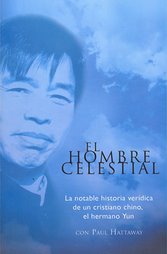Sunday January 23, 2005
The Observer
Deborah Wearing tenderly embraces her husband while he whispers sweet nothings. 'You're beautiful,' he tells his wife. 'Absolutely gorgeous. I adore every thing about you. I could kiss you all day.' Despite the chill January afternoon, the muddy garden, he twirls her around as though they're at a tea dance. They make an elegant pair, one of those couples that naturally seem to fit together. He serenades her in a velvety singing voice and she laughs, delighted.
They look and sound like they've just this moment fallen in love. Which, although they originally married 20 years ago, in a way they have.
In 1985 Clive was struck down with one of the most extreme cases of amnesia ever recorded. A virus destroyed a part of his brain essential for memory. It's not only most of the past from before the illness that he can't recall. It's practically everything since then. Every conscious moment is like waking up for the first time. New information, as Deborah describes it, 'melts like snow, leaving not a trace'. The one part of his previous life that he does remember - when he was a sought-after conductor and classical music producer for Radio 3 - is Deborah. Every time he sees her again, even if she's only been out of the room to make a cup of tea, he'll greet her with a rapturous hug.
Where once they used to share a smart, book-lined flat in Maida Vale, west London, now Clive lives in a care home and Deborah visits him from her new base in Reading, two hours' drive away. There's a laminated sign on his door: Clive's room. Inside, the drawers are labelled and a notice in big letters above the sink - 'Darling!' - reminds him to clean his teeth. On his piano, sideboard, bedside cabinet - so that they are the first things he sees every morning when he opens his eyes and tries to recall who and where he is - are pictures of Deborah.
It's virtually impossible for them to leave the home without a care assistant. Two years ago they stayed, unescorted, in a hotel for Christmas and, because the electronic door alarm wouldn't work, Deborah resorted to piling tables and chairs up in front of the door to prevent him wandering away in the middle of the night. They live in a closed, insular world of two. Clive has no friends for the simple reason that he would forget who they are. 'We don't mix,' explains Deborah. 'Clive lives in his unit and goes out accompanied by members of staff. Occasionally when he's out with me he will say strange things to people in cafes like, "Are you the Prime Minister?", "Are you the Queen of England?" It's because they are the first person he has seen since waking from 'unconsciousness' that minute, so they must, he presumes, be important.'
Now Deborah, a communications officer for the NHS, has written a book about Clive's illness: Forever Today. More than an informative guide for the thousands of carers for brain-injury survivors, it's an eloquent biography of a man who was once a world expert on early music and an inspiring, if formidable, conductor. Most of all, it's a portrait of a remarkable and enduring relationship.
She wrote it, she says, 'in bed, instead of sleeping'. And, although this is left unspoken, one presumes to fill the gap her husband used to fill. 'I was trying to figure out what happened to us. Who are we? What does this mean to us? Where do we go from here? The anguish had to come out somewhere. I also felt that what had happened to Clive wasn't being properly communicated. Not in medical records or neuro-psychological tests. They could say how amnesiac he was, but I was always left saying, "Yes, but what else?"'
We are all the sum of our memories, both recent and long ago. They are what make us who we used to be, who we are, who we become. The ancient Greeks understood. They had two rivers in Hades: Mnemosyne and Lethe, memory and oblivion. Our collective memories remind us that we're bound together. I meet Clive on the day European countries hold three minutes of silence for the victims of the Indian Ocean tsunami. This, one imagines, would be an irrelevance to Clive.
In a way all writers are obsessed with recollection, whether it's mining one's childhood for a first novel or excavating a famous person's life for a biography. But recently authors like John Bayley and Linda Grant have written specifically about memory and loss. Bayley wrote movingly about his wife Iris Murdoch's descent into Alzheimer's. In Remind Me Who I Am, Again Linda Grant analysed the meaning of family identity after her mother, Rose, was diagnosed with dementia. Lyrical and thought-provoking though these books may be, they don't begin to address the Wearings' plight. There was no long decline, no warnings, before Clive fell ill. He was 46 years old. His wife - and this story is as much about her loss as his - was 27. They had been married barely six months.
It began with a headache and ended with Clive losing his mind. Fifty people a year are struck down with encephalitis or inflammation of the brain. Several viruses can cause it. Doctors at St Mary's Hospital Paddington - to where Deborah rushed Clive when he collapsed on 29 March 1985 and where he would remain for the next seven years - diagnosed that the herpes simplex 1 virus, which usually causes cold sores, was to blame. Very rarely, the virus wakes up from dormancy near the spinal column and, instead of causing a cold sore, heads towards the brain. The brain inflames, swells up, is crushed against the skull. The main target area is the hippocampus, which is what we use for recall, for laying down new thoughts. At the time, all Deborah knew was that her husband was probably going to die - he was suffering fits, falling in and out of consciousness, and doctors gave him only a 20 per cent chance of survival. However, after being pumped with antiviral drugs for a week, he began to improve, at least physically. No one knew how much of his brain had been affected. It would be months before Deborah would comprehend the medical consequences of the virus - in which she was later to become an expert as a campaigner for people with brain injuries - and also the emotional fallout.
How would she describe that first year? 'Stunned,' she says now. 'In shock. Uncomprehending. It was like being underwater: you are not in control of your movements, you can't hear anything, you can't understand the world. It was as though we were trapped below the surface and we didn't know how to get out.'
To begin with, following his physical recovery, he was manically euphoric. This could lighten the atmosphere: he'd jump out of wardrobes, waltz down the ward, play the hospital jester. On the whole this jocularity protected people from registering what had happened to his mind. Sometimes it was frightening. He'd be hard to control. He leapt out of the car on the dual carriageway. He was put on all kinds of tranquillisers - 'liquid kosh', in Deborah's words.
Then his mood changed. 'One day when I arrived from work, Clive's sobs were audible as soon as I was through the ward door,' she recalls. 'He was sitting on the edge of the bed, head bowed as though he were ashamed. He did not stop sobbing. I began to sob with him ... He was inside himself, horrified, defeated by what he saw. All I could do was tell him that I loved him.' He wept continually for over a month.
He became obsessed with finding out what had happened to him and yet what he didn't, couldn't, understand was that this knowledge was beyond his reach. His diaries show his desperation and also the articulate man he had so recently been. '7.46am: I wake for the first time. 7.47am: This illness has been like death till NOW. All senses work. 8.07am: I AM awake. 8.31am: Now I am really, completely awake. 9.06am: Now I am perfectly, overwhelmingly awake. 9.34am: Now I am superlatively, actually awake.'
Some fundamental facts he can remember. He knows that he is married but has no recollection of the wedding. He knows that he has children (from his first marriage) but cannot recall their names. When he was in hospital he knew his home phone number but had no memory of making calls. Deborah would return home from working as a press officer at John Lewis and an evening with him in hospital to a barrage of phone messages. 'Hello, love, 'tis me, Clive. It's five minutes past four, and I don't know what's going on here. I'm awake for the first time and I haven't spoken to anyone ...' 'Darling? Hello, it's me, Clive. It's a quarter past four and I'm awake now for the first time. It all just happened a minute ago, and I want to see you.' 'Darling? It's me, Clive, and it's 18 minutes past four and I'm awake. My eyes have just come on about a minute ago. I haven't spoken to anyone yet, I just want to speak to you.'
Deborah and Clive had got married a year before. They had met six years earlier when Clive had volunteered to conduct the John Lewis choir. He was almost 20 years older: a charismatic, volatile musician who did everything with passion, whether conducting or studying or smoking his endless cigarettes. He was everything a romantic, idealistic 21-year-old woman who loved the theatre could wish for. 'It's not in the least surprising that I'd fall in love with an artist,' she says with the luxury of hindsight. His first words to her - which now seem laden with poignancy - were: 'The most important things cannot be spoken. That's why there's music.'
Following the illness it's striking how they react in similar ways. Both are quick to laugh and cry, both find solace in music (the one thing Clive can still do is conduct and play the piano. The music miraculously seems to carry him along from one second to the next). Both are lost and bewildered: Clive in his head, Deborah trying to find help and support. Both are together but also alone.
'I had my own dislocation, too,' she agrees. 'Nowhere was home anymore. Nowhere. It was too full of Clive and therefore too sad. The walls were yammering with his unfinished work: projects, music, schemes.' She loves words, and speaks and writes carefully. But for a moment her vocabulary fails her. 'Uneverythinged.'
Before Clive became ill, she had given up all her free time to support his music. 'I helped him with his choir. With his professional ensemble, I helped him with his productions at the South Bank. It was my life, too. We were just beginning to make progress when he was suddenly taken away. All that knowledge destroyed by his brain. Twenty-five years of research - gone! Yet at the time it wasn't important. All I wanted was Clive.'
It's difficult to comprehend quite how much of their lives have been swallowed up by the virus. Deborah mentions small details - payphones, new Sunday-trading laws, Dynasty on the television - that place the beginning of the story in the Eighties, a full 20 years ago. Time passes - for Deborah, if not for Clive. In the book she's 30, 35, 40. She wonders if she'll ever be able to have children.
Encouraged by Deborah and the Amnesia Association, the charity (since merged with Headway) that she helped to set up, the NHS now has specific recommendations for people suffering from brain injuries. Back then, services were dire. 'I wasn't a natural charity person,' says Deborah. 'I had to learn how not to be shy. I was there because it had to be done.' For six-and-a-half years Clive was cared for on a psychiatric ward because the authorities didn't know what to do with him. 'I thought, I'll bring everything I have to raising awareness and give it everything I can. But I couldn't sustain it.'
So, nine years after he fell ill, Deborah decided that she needed to start a new life in America, a country to which she had travelled as part of her charity work. 'I haven't put too much of it in the book because it was too hard to read. But for years all he said was, "How long have I been ill? What do you think it's like? One long night. How long has it been? Four years? Five years? Seven years?"'
'I used to imagine that there was a special bit of my brain which was turning to liquid. I couldn't hear the questions any more. I'd have to rake through my mind: what was it he just said? I would give the wrong answers and he didn't miss a beat. He was in his groove. Literally in his groove.'
Deborah sold up, packed her bags and moved into an apartment in downtown New York. Clive had been moved to a care home and was finally receiving the right long-term treatment - so much so he was almost free of the drugs he'd been on for a decade. Now it was Deborah's turn to forget. Or at least try to. She spent her days as she had done when she was growing up - standing in front of paintings, sitting in dark theatre auditoriums. She took writing workshops and hung out with performers. In 1994 she filed for divorce (while still remaining joint next-of-kin with Clive's son, Anthony). Was your marriage over? 'Well, no. I got divorced for technical reasons. I didn't intend to live in England again. There was too much pain there. But nothing had changed between us.'
She tried new relationships, in particular with an actor she calls Jon, who also happened to be a troubled Vietnam veteran. 'I didn't want to marry someone else because I could never have said, "Forsaking all others". But I wanted to be with someone else and have kids and a regular life. Yet how can you love somebody when you already love somebody? I loved Clive. OK, I couldn't actually live with him which is why - even though I didn't know it then - I was selecting impossible people, some of them with dodgy minds.' In the end she decided to return home. To Clive, the man who had never really stopped being her husband.
Neurologist Oliver Sacks asks in his book The Man Who Mistook His Wife for a Hat, 'What sort of life (if any), what sort of world, what sort of self, can be preserved in a man who has lost the greater part of his memory and, with this, his past, and his moorings in time?' Of a patient with similar symptoms to Clive, he writes: 'One tended to think of him, instinctively, as a spiritual casualty - a lost soul. Was it possible that he had really been "de-souled" by the disease?' This is the theme that Deborah returns to again and again in her haunting book.
On her return to Britain, she comes to the conclusion that 'there is still a Cliveness about Clive'. She still sees in him a kindness, a generosity, a way of looking at the world that is uniquely him.
'I realised that we are not just brain and processes. Clive had lost all that and yet he was still Clive. Even when we didn't see one another, when we were six months apart and only spoke on the telephone, nothing had changed. Even when he was at his worst, most acute state, he still had that huge overwhelming love ... for me. That was what survived when everything else was taken away.'
For years she'd tried to make sense of what had happened to her, whether it was searching for the meaning of life in art galleries or New Age workshops. On 10 March 1999, she found solace. She telephoned a Christian friend and asked her to pray for her. 'I didn't even think I liked Christians. I rang this person despite the fact she had a faith. Yet there I was, alone in my flat and wondering why am I here? What am I doing? I love this man but I can't live with him and I can't live with anybody else. During the call I felt like this force was with me. I was drained and it was like life pouring into me.' She says it's this new-found faith that has helped her to come to terms with the fact that she'll never have children. On Easter Sunday three years later, Deborah dressed up in her best frock, collected Clive from the home and they renewed their wedding vows. Later that afternoon Clive celebrated by tucking into Victoria sponge.
Now it's enough to look forward to weekends with Clive and know that finally he accepts who he is. He is still handsome and charming, garrulous and good fun. But he's calmer now, easier. 'He totally defers to me,' she says. Although this doesn't stop him 'confabulating' from time to time, which is the neurological term for making things up. Recently he was asked to give his full name. 'Clive David Deborah Wearing' he replied firmly. In one way he'd remembered wrongly. In another, he hadn't at all.
Monday, October 22, 2007
Posted by
Ceci
at
6:05 PM
![]()
Subscribe to:
Post Comments (Atom)





































No comments:
Post a Comment